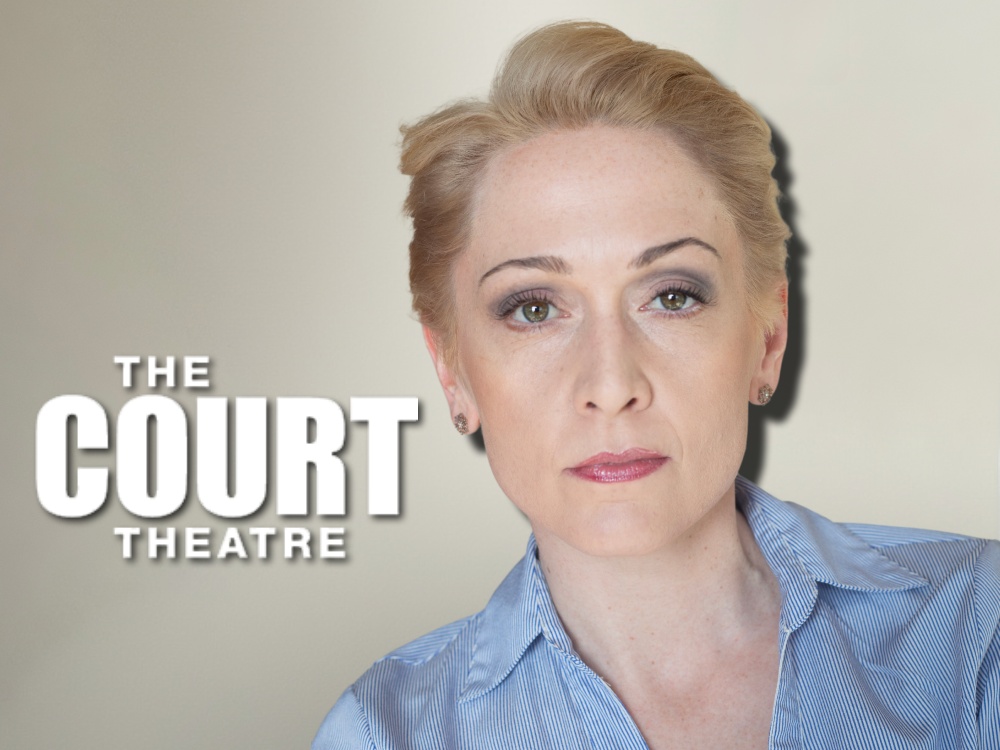Director Kathleen Burns talks puppets, packs, and queer families in The Court Theatre’s next production, a cutting-edge piece of contemporary theatre, Wolf Play.
Kathleen Burns is no stranger to Christchurch audiences. Over the past two decades, she’s been a fixture at The Court Theatre – as an actor, improviser, director, and all-round powerhouse of Ōtautahi theatre. Following her acclaimed direction of Fun Home in 2023, she returns to helm one of the most anticipated works in this year’s season: Wolf Play by South Korean playwright Hansol Jung.
“It’s the most challenging play I’ve ever worked on,” Burns says. “It assumes the highest intelligence of its audience. It’s smart, funny, moving, inventive – it really puts the ‘theatre’ in theatre. This is for people who want to see creative storytelling.”
Buying & selling your child
At the heart of Wolf Play is a six-year-old boy, first adopted from South Korea and then “un-adopted” by his American father, who attempts to rehome him online. It’s a story inspired by real-life cases of “re-homing” – and one that Jung transforms into a work of theatrical imagination.
“The play is about international adoption and the repercussions of that kind of displacement on children,” Burns explains. “But ultimately, it’s about family and chosen family, and what you’ll do to survive and protect your pack.”
The boy is represented not by a child actor, but by a puppet – designed by Julian Southgate and animated by performer Reylene Hilaga.
“First of all, puppets are hard work!” Burns laughs. “But what’s beautiful about this one is that it’s not too detailed. That allows the audience to project themselves into it. The wolf is this child’s psychological manifestation – a survival strategy. It also ties into the idea that this child has been treated like a thing, bought and sold, pulled between adults trying to get what they want.”
Exploring queer parenting
While adoption is the starting point, Wolf Play is equally concerned with the wider questions of belonging and identity. The boy’s new adoptive parents are Robin and Ash, a queer couple, with Ash portrayed by Ōtautahi poet and comedian Ray Shipley in their Court Theatre debut.
“The most urgent theme here is family,” Burns says. “And I don’t think you can separate that from queerness, because queer people want families just as much as anyone else. The difference is that sometimes there are barriers – financial, legal, or cultural – that heterosexual couples may not face. This play holds all of that complexity.”
She’s especially proud that Wolf Play offers queer audiences something rare: representation that isn’t centred on tragedy.
“Christchurch audiences are hungrier now to see works where queer people live full lives, not just trauma stories. That’s another thing I love about this play. It acknowledges trauma but it doesn’t retraumatise queer audiences. It shows that queer people want the same things everyone else does: love, family, connection.”
Fighting for family
Ash’s character is also a boxer, and the production incorporates a highly physical, stylised boxing element. Burns sees this as more than just stagecraft – it’s metaphor.
“We’ve had Ray training with a boxing coach, and there’s a consultant on board. The boxing serves the story – it’s about survival, about fighting for family. It becomes a metaphor for the difference between a lone wolf and a wolf that’s part of a pack. What will you do to fight for your family? How far will you go?”
Falling in love
Burns admits she wasn’t instantly sold on Wolf Play.
“Honestly, I resisted at first! I hadn’t read or seen it, and I had my eye on another play. But the Artistic Director suggested I read it, and the second I did, I knew – this is me. I fell in love with it immediately.”
Her instincts were right. Since its premiere, Wolf Play has become one of the most acclaimed new plays on the international circuit, winning the 2023 Lucille Lortel Award for Outstanding Play. For Burns, though, it’s less about awards than about the connection with audiences.
“My hope is that people come out of this play and say, ‘That was a bloody good play,’ and that they want to spend more money on seeing more theatre. Money is tight everywhere in the arts. If people come and see this and leave excited for more, that’s the goal.”
Quietly powerful
For all its stylised boxing and theatrical invention, Burns says the moment she treasures most in Wolf Play is one of the simplest.
“It’s a scene where Ash, the boxer, sits with the child and they’re just eating cereal together. Nothing much happens, but it’s about connection – the thing we’re all searching for. Amid all the chaos and pain, a moment of true connection is about as good as life gets.”
That philosophy seems to guide Burns in her own work as well. Known for her generosity as a collaborator, she describes her directing approach as one of trust.
“Trust the actors, trust the writing, trust your designers. My job isn’t to be a god of the work; it’s to bring the right people together and guide their ideas into a distilled, beautiful piece.”
Why supporting queer theatre is so important
Burns is clear about why audiences need to show up for Wolf Play.
“The only way we’ll see more plays with queer people living their lives – not just being defined by trauma – is if people come and see them. So come. Support it. That’s how we make space for more stories like this.”
Wolf Play runs 18 October – 22 November 2025 at The Court Theatre, Christchurch. Tickets at courttheatre.org.nz.

































